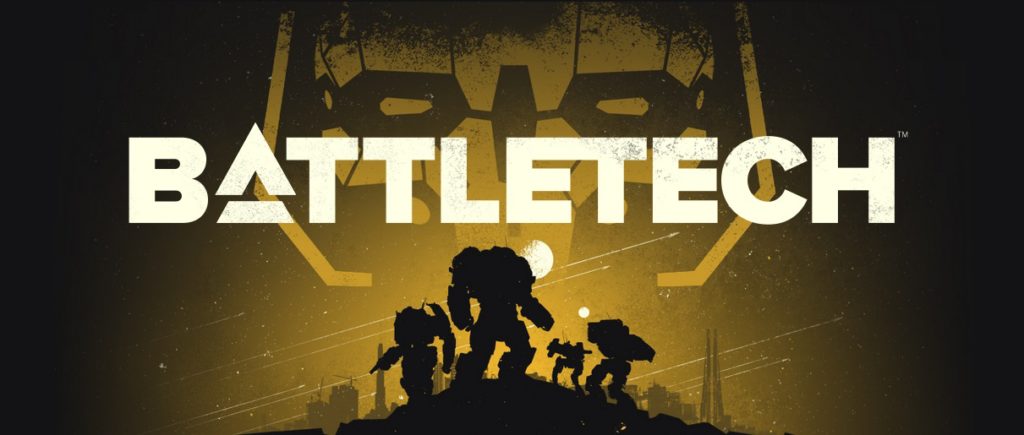
For those of you unfamiliar with Battletech, well, it’s been around the block a few times. Originally created in the 80s, the FASA Corporation franchise has been through several names and lawsuits over the various names and images related to mechs. There has been a board game, a pen and paper RPG with multiple editions, a Sega Genesis Battletech game, which sports a unique two player system and is highly recommended, over a hundred novels, a card game (which was quite fun) and even a short-lived cartoon! Battletech also spawned the wildly popular Mechwarrior franchise of games, which are significantly more mainstream, especially to PC gamers. In short, the pedigree for the Battletech franchise is outstanding and the volume of media and materials related to it.
In recent years however, Battletech has suffered somewhat of a decline, and the series is virtually unheard of by most modern gamers. Fortunately, the developers over at Hare-Brained Schemes are out to change that with the latest video game iteration of the FASA series behemoth, simply titled Battletech. Hare-brained Schemes was co-founded by Jordan Wiseman, one of the original creators of Battletech in the 80s. Some of Hare-Brained Schemes’ other titles include the excellent Shadowrun Returns and the interesting yet utterly grueling Necropolis. Basically, there’s not a single company more suited to make Battletech than Hare-Brained Schemes. That being said, let’s take a look at the actual game!
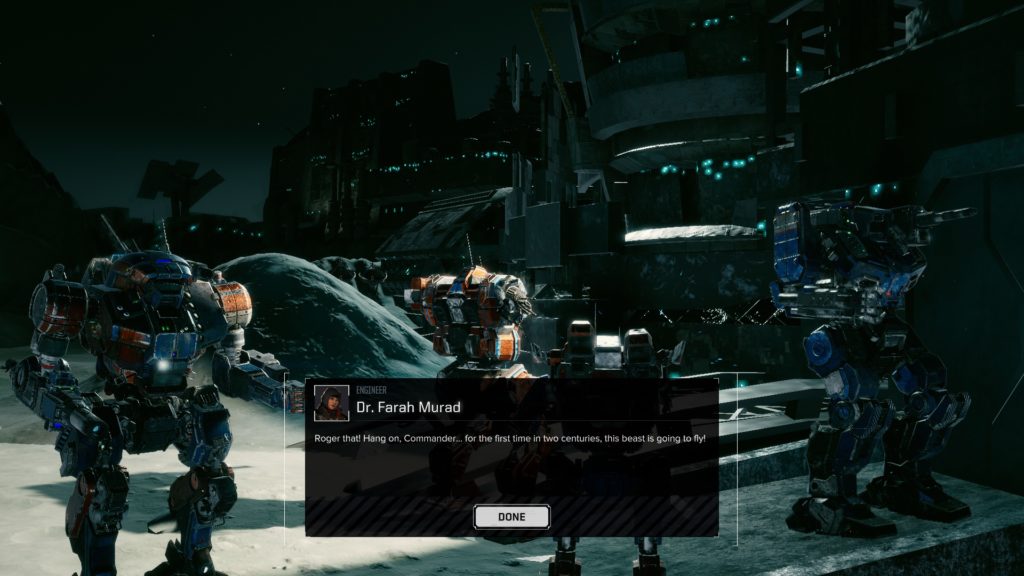
Battletech is essentially a story-driven tactical strategy game. Superficially, it resembles the somewhat recent reboot of X-Com: Enemy Unknown, but with mechs and further into the future. It’s turn-based and menu driven, and you use terrain for cover. That’s pretty much where the similarities end, however. The storyline in Battletech takes you through humanity’s expansion into space and our delivery of our warlike tendencies into our new dominion. In the 3000s, we’ve settled multiple star systems, created new governments, and slaughtered each other across the Milky Way. After you get a grasp for the sheer breadth of the Expansion, the game focuses into something a little more familiar, a military coup. Turns out even a thousand years from now, we just can’t stop backstabbing each other. Go figure. No major spoilers for the plot here, but suffice it to say, it’s well-written, not insanely complicated, and enjoyable. It is highly recommended that you play Battletech for the story as well as the strategic gameplay, as the game draws heavily from the vast repository of Battletech lore available across multiple mediums and delves into a fair amount of nuance. The way the structure of the game allows you to enjoy all the tidbits of information or bypass them and get straight to the meat of combat is also excellent, allowing for appeal to a diverse spread of play styles.
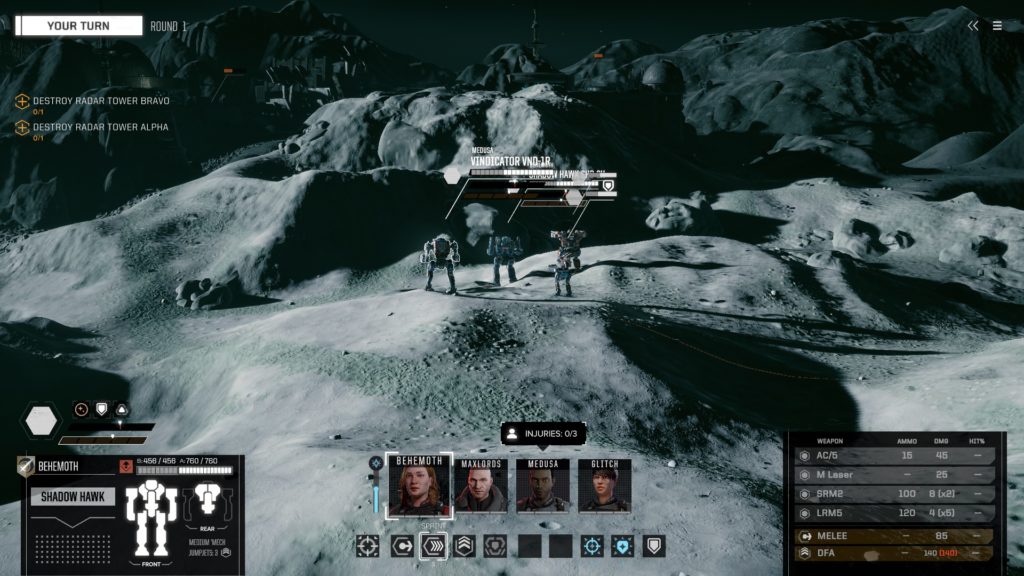
Once you get past the storyline, Battletech drops you right into hands-on training and then a mission. Training is decent, but it really doesn’t give you a full view of the game, just enough of a grasp on the basics to get a feel for it. A lot of what you need to know, you’ll either have to spend time reading or learn on the fly. Opting for the latter means you might not do quite as well in combat at first, but the game is designed in such a way that you can pick up, play, and mostly manage to survive. I made it through my first three combat scenarios before I figured out how to turn my mech properly at the end of a movement phase to avoid massive damage. As tactical games go, Battletech is fairly forgiving. You have a free-range camera which allows close in zooming and full 360 degree rotation, as well as auto-targeting for both enemies and building targets. As a turn-based game with hidden enemy movement phases, Battletech manages to create a fairly cohesive main combat screen, opting to skip layers like X-Com in exchange for the ability to use the free camera to physically view your cover effectiveness in addition to showing lines and tracers for firing paths and visibility. Again, the direction you face matters, especially since the backs of most mechs have significantly less armor and if you accidentally face the wrong way, you are unable to fire at the enemies since they’re not in your range of view. This is easy to make a mistake on, since once you select movement with a single click, your second click locks in your directional movement, but there is no confirmation or anything, simply a radar-style overlay that pops up to show you visibility. Accidentally double-click and you might get hammered from behind by a plethora of enemy rockets or lasers. Oops.
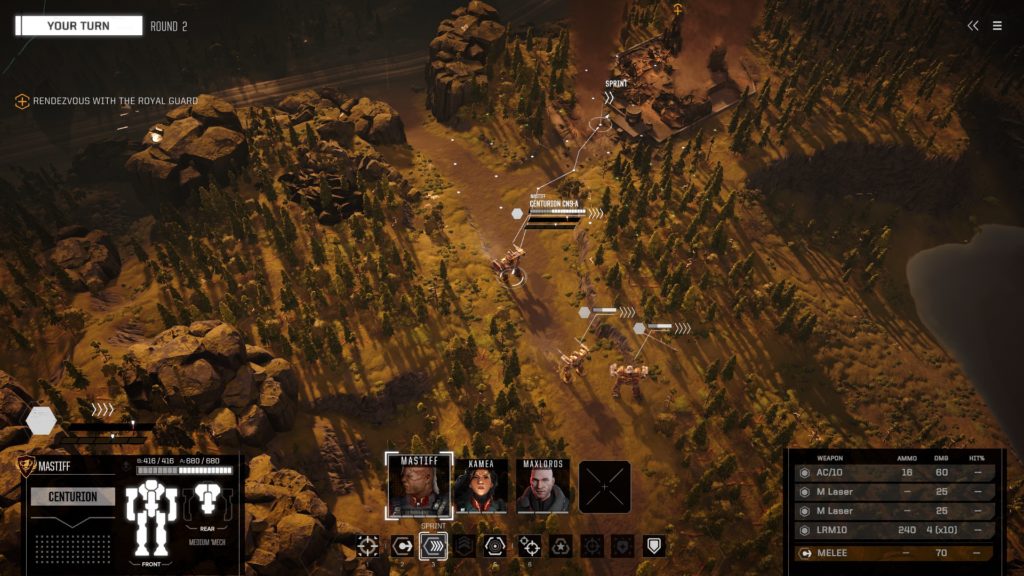
Targeting the enemy is well-done and zooms into a first person mode for firing solutions and firing action sequences. This adds a small amount of excitement to an otherwise somewhat stale combat map. In addition, at least one of your mechs’ movements each turn will be shown in first person with a zoomed in camera, the two modes combining to add a much-needed cinematic view of combat and movement. In addition to the combat cameras, you are also able to use your scroll wheel (or whatever buttons you assign) to zoom in on the battlefield. This is actually more impressive than it might sound, as Hare-Brained Schemes went to a significant amount of trouble to add small details all throughout the battlefields. Small sheds and structures are destructible, collapsing as your giant metal mechs push their way through the landscape, and zoomed in, the details of those constructions are much more complex than one might surmise. In one combat scenario, I zoomed in on the cockpit of my mech, only to find that the rain that was falling was actually visibly hitting the windshield and beading up, a detail that would have been completely invisible had I not taken a closer look at the action.
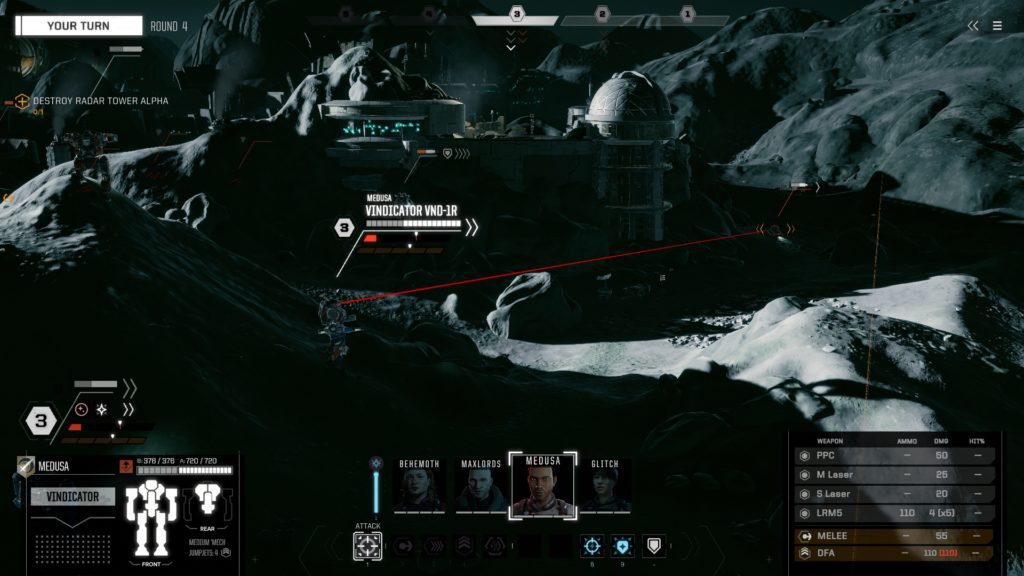
But not everything about combat is great. The overall interface for Battletech is complex and not particularly intuitive. You can bumble your way through and survive mostly intact, but it’s simply a bit…clunky. I found myself using the escape key to back out of actions repeatedly as clicking elsewhere confirmed actions I didn’t want. The initiative is oddly structured too, often splitting my team up into movements between enemies but with no noticeable initiative tracker. It’s a bit odd to start out moving all your men, have some inaccessible on the next turn, and not really know why. It’s something you get used to, but again, slightly unwieldy. You have special abilities that can target mech areas with penalties, and your regular shots hit most of the time, but you can definitely miss, and often at inopportune times. Ultimately, combat is solid but plodding and slows down the overall pacing just a bit more than I’d like for a turn-based game, which on the whole is a genre that’s slow to begin with.
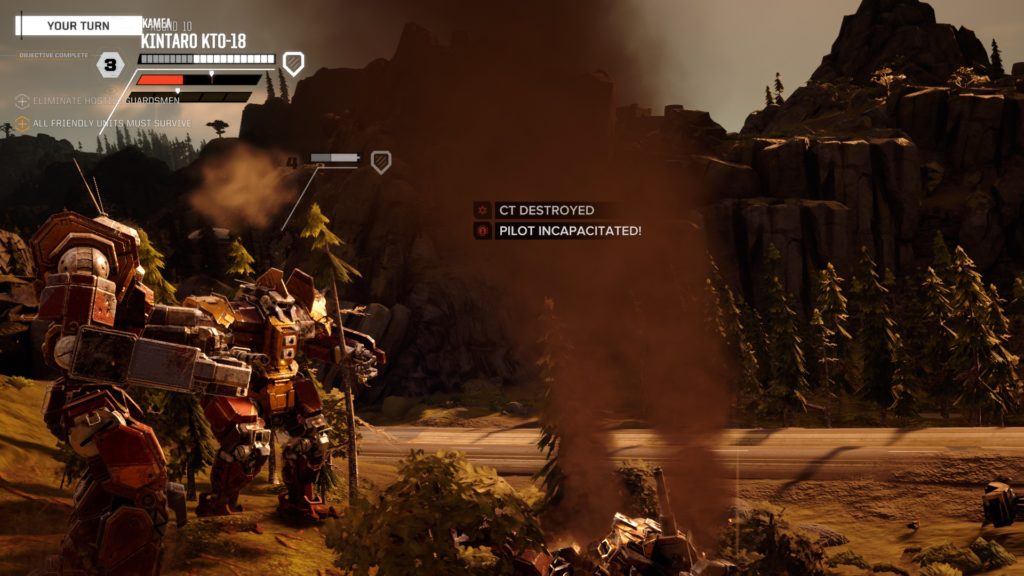
The remainder of the game is made up of a series of menu management systems for your mechs, experience, conversations with the crew, and selections for navigation, contract selection (you are a mercenary after all) and purchases. You can retrofit your mechs, but it’s a slow, complex process and you need to watch your tonnage. Again, there are tutorials, but they don’t quite manage to fully explain things to the extent that you’ll be navigating every menu with ease. I spent a fair amount of time puzzling out different areas of the main menu system bit by bit, and by the fourth battle or so, I had a decent grasp on most of the systems. The learning curve across the board for Battletech is certainly slightly above average but not daunting by any means.
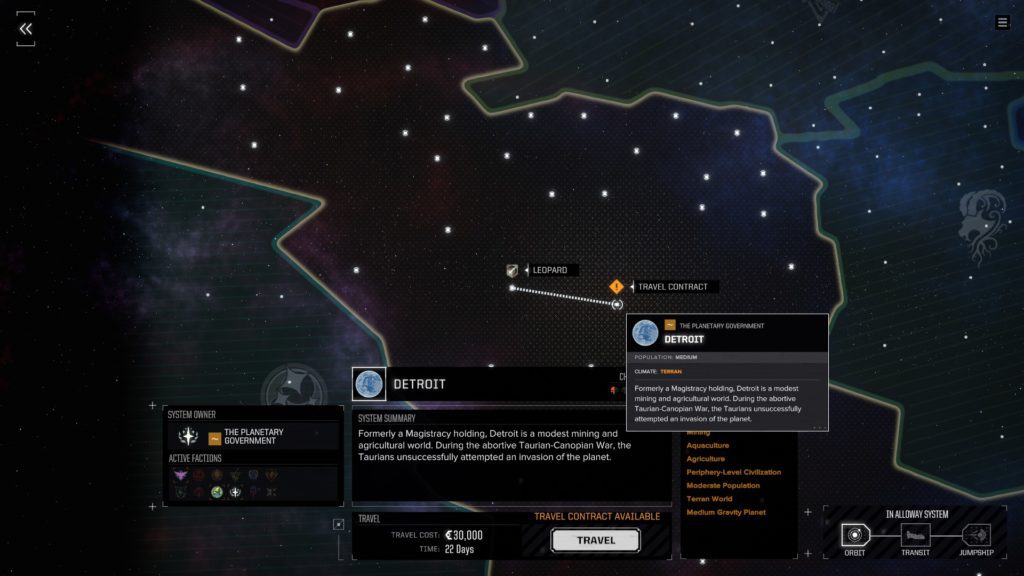
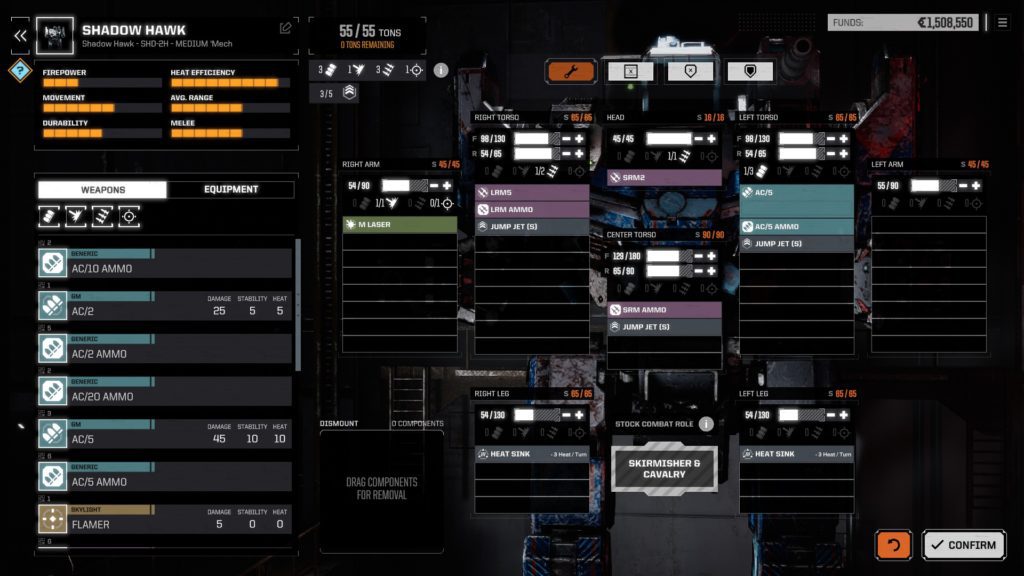
As long as you enjoy mech combat and decent sci-fi storylines, Battletech is an above average title. Be aware that you won’t be skipping from battle to battle quickly with the menu management system and repairs you’re likely to need after each battle, but the storyline is quite good and makes up for most of the shortcomings. I found most combat missions to average out at around 20-40 minutes depending on their scope, which is quite reasonable for a tactical strategy game. The graphics are excellent and it’s definitely worth paying attention to the fine detail the artists over at Hare-Brained Schemes managed to insert into the game, right down to the dangling hydraulics jutting out of the blown-off arms of your mechs during combat. The story sequences also have an enjoyable almost painted feel to them and fit well with the rest of the game’s distinctive look. All in all, Battletech is a deep, challenging game which seems to be overall a little more forgiving than it should be in terms of strategy, leaving it as an above average title in the genre. Give it a shot…you might be pleasantly surprised!
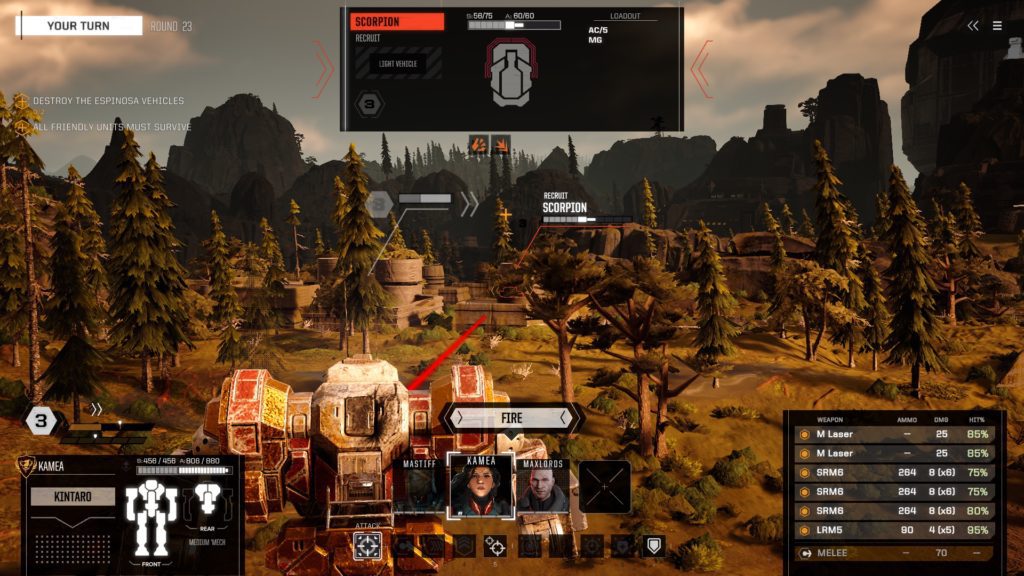
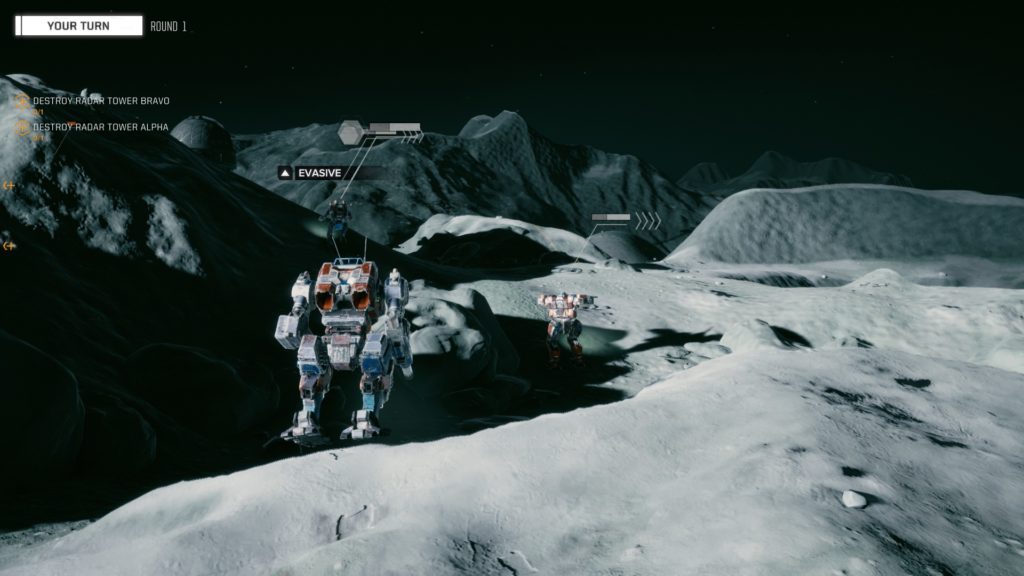 This review was based on a current Steam version of Battletech running on maximum graphics settings on an I7 8700k with 16 GB of DDR4 3000 RAM, an M.2 1TB SSD, and a GTX 1080 ROG Strix graphics card. The game was provided by the publishers for the purposes of this review.
This review was based on a current Steam version of Battletech running on maximum graphics settings on an I7 8700k with 16 GB of DDR4 3000 RAM, an M.2 1TB SSD, and a GTX 1080 ROG Strix graphics card. The game was provided by the publishers for the purposes of this review.


Sounds like it might be a good tactical entry. I hope the difficulty curve is a little more steady than X-COM, though. I loved the X-COM games, but they ramped things up so fast and suddenly. I find myself often resorting to save-scumming on them. :/ A game with a similar feel that didn’t jump so suddenly would be very welcome.